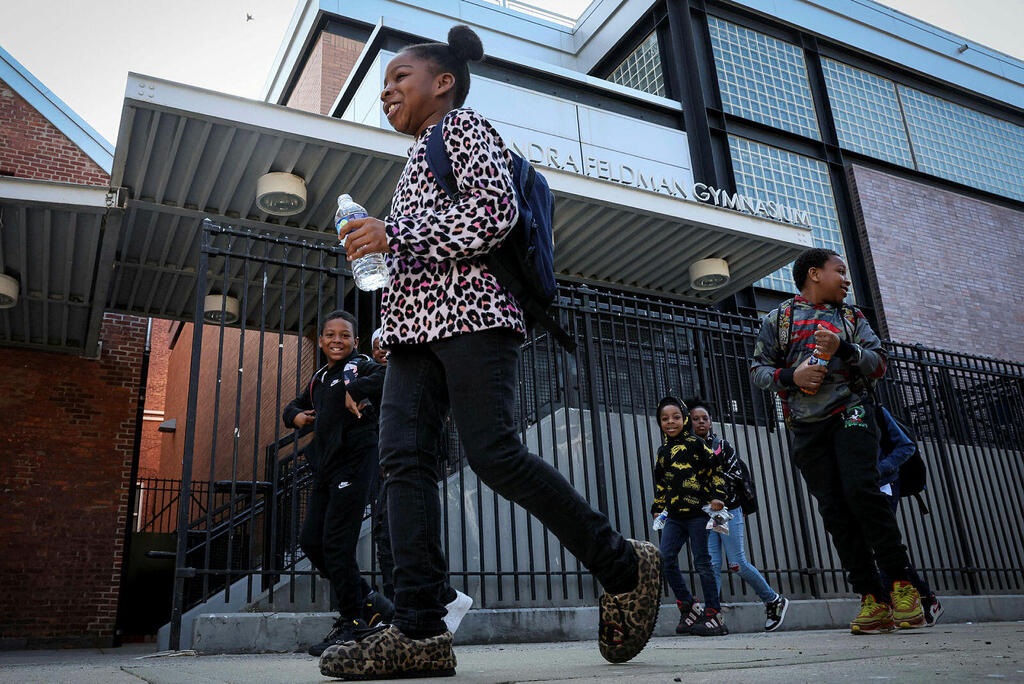While not quite the shining beacon on the hill it once was, the United States remains the go-to spot for many Israelis, with New York City chief among the most sought-after cities.
Other stories:
Its inescapable allure, to a significant extent, rests on past laurels, but that doesn't alter the perception that it's the most vibrant, pluralistic and eclectic locale on the planet, attracting the world's biggest talents to hone their crafts, even if only for a while.
Israelis who move to New York have plenty of homeland tidbits to hold onto – bags of Bamba snacks in every shopping window on Hanukkah, Boy Scout activities and Israeli community parties all over the place.
Judaism still stands as the second most ubiquitous faith in the city, embraced by 1.6 million of its inhabitants in 2022. That's more than the populations of Jerusalem and Tel Aviv combined.
Except many of the Israelis who dream of a Manhattan relocation, fail to take the noteworthy changes the city went through into account. In order to understand the exorbitant cost of living, googling "the world's most expensive cities" is not really much of a prerequisite. You sense it everywhere you go.
Yes, Manhattan remains by far the most expensive borough the city has to offer, but it's been a while since anyone viewed Brooklyn or Queens as being "affordable". If you're in Harlem, swing by the nearest bodega and see how the price of eggs has soared by a staggering 57% in the past year.
New York has always been considered expensive, but the COVID-19 pandemic took what was already bad and made it much worse. According to the latest studies, half of the city's households lack the necessary funds to support themselves, maintain an apartment, afford basic necessities, pay for health care and move freely.
This data exemplify how profound the crisis is and to what extent it has festered. It changes the city's demographics and urban culture every minute of every day, even as these lines are being written.
An increasingly large number of families are mounting an exodus, a problem that, while it has not escaped the attention of Mayor Eric Adams and Governor Kathy Hochul, remains one that might be too intrinsic for them to meaningfully curb.
"One in every five Israelis who move here bursts into tears on the first week"
Almost 80% of the households that did not have sufficient income to withstand the city's minimal cost of living in the city, ended up wasting over 30% of what little they had to pay for housing. Rampant inflation means the price of food has become a huge concern and even public transport, once accessible to everyone, is getting out of reach.
People in government, academia and the public at large agree that the current situation is worse than it was at the height of the pandemic. In each of the city's five boroughs, households require $100,000 annually to afford housing, food and transportation, plus a little extra for unforeseen expenses, which tend to pop up quite frequently.
When you take into account that the city's median income stands at around $70,000 a year, the problem's magnitude becomes more apparent. In Manhattan's more expensive neighborhoods, home to the country's most affluent, a family of four needs $150,000 a year to continue calling the city their home.
While the Darwinian mindset of how supply and demand means that only the strong survive, data shows that it's not just the most vulnerable that get priced out. Over 80% of households that failed to keep up with the cost of living had at least one adult working full-time, and over half of those priced out has a bachelor's or master's degree.
"I get 5-6 calls a week from Israelis wanting to move here, and I have to tell many of them the unpleasant truth – that they won't be able to hold on here," says Eliad Benari, owner of Relocation Express.
"I recently had a CEO of a company that raised $20 million and spoke to him about his expectations. We realized that with a family of three, making $300,000 annually, it would be very hard for him to sustain the level of accommodations Tel Aviv got him used to," he says.
"People don't understand how bad it is until the first tax report comes up. Many Israelis living here are still subject to Israeli payments, such as National Insurance, health insurance and more." according to Benari.
"It's hard for them to accept that even if you make a lot of money, it might not be enough. Renting a place, opening a bank account ... it requires a social security number, credit score and other things they don't have.
"One in every five Israelis who move here bursts into tears on the first week. Initially they sleep in a hotel for two weeks but then comes the part of looking for a place. They see what it entails and how nobody accepts them, even if they're some tech CEO who secured a huge payout," he adds.
Life in the city for observant Jews can get trickier still. Most send their kids to private religious schools, and half of them require scholarships or other types of financial aid. Haredi Jews end up spending $20,000 a year on private education.
Modern Orthodox Jewish families will spend around $6,280 a year on religion-related expenses. Synagogue membership, donations (where tax rebates are abundant), Jewish summer camps, holidays and the occasional visits back to the motherland. This goes up to about $8,980 a year for Haredi families.
Kosher food is the most egregious of costs, as it comes out to between around $12,000 to $15,600, much more than the usual $8,000 for the typical American family median household.
The location where observant Jews choose to live also affects their move, as they prefer to live in neighborhoods that contain synagogues, which tend to be pricier. This is how Benari summed it all up: "The city's a lot of fun, but NYC is like a casino – If you don't get the house, the house will end up getting you."



